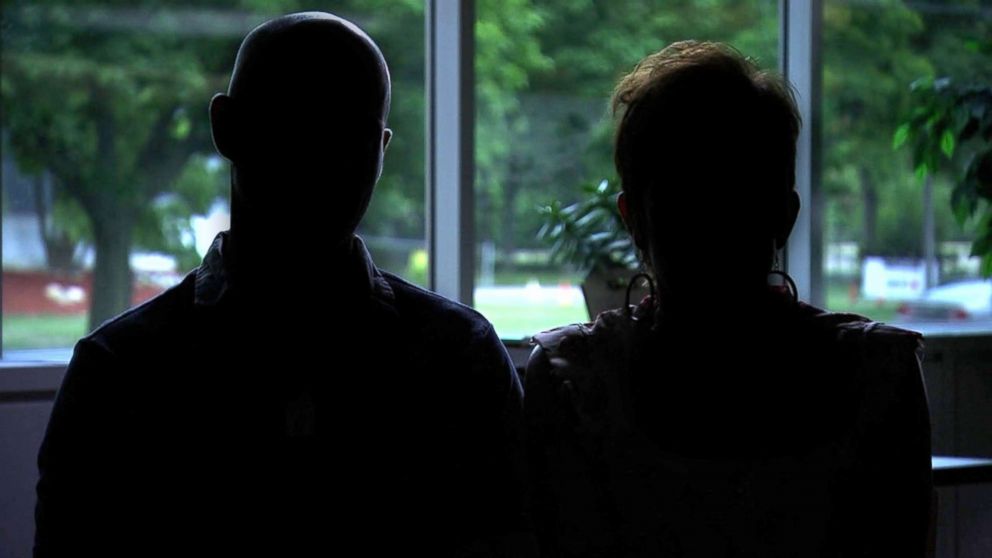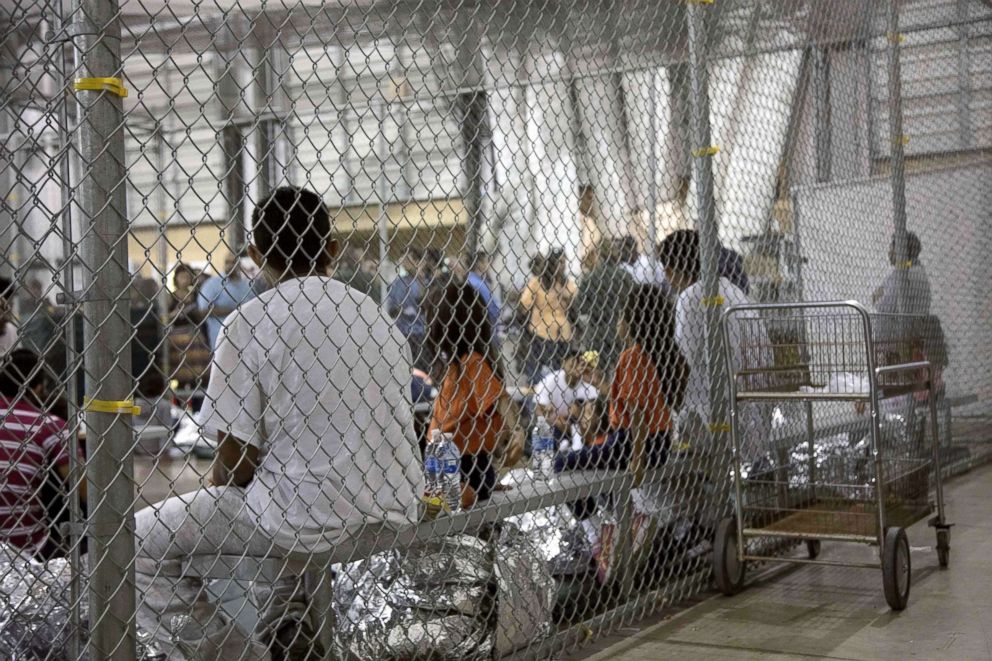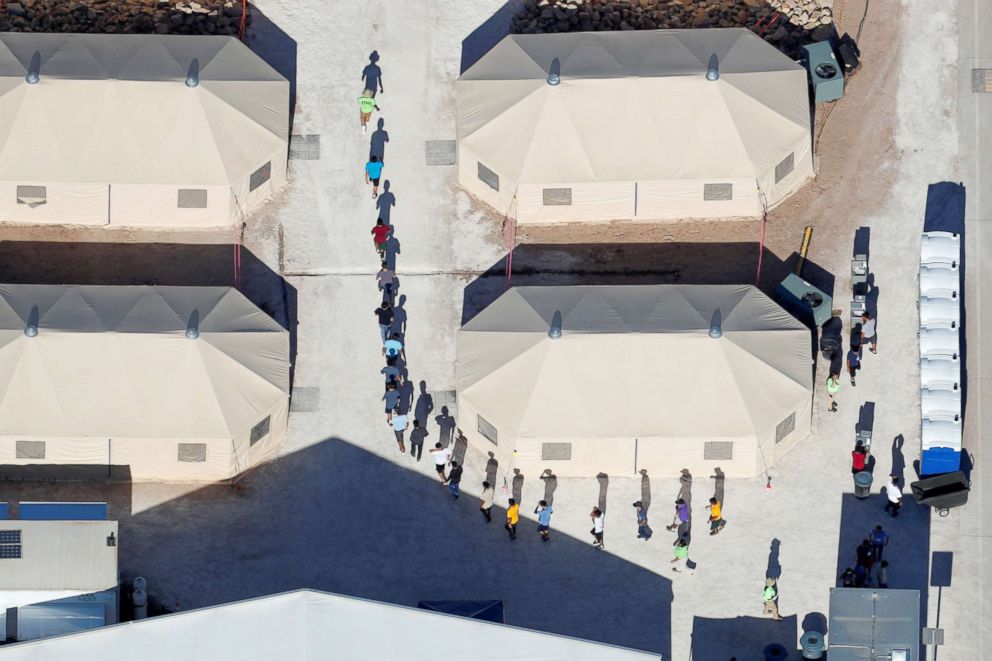US foster parents of separated immigrant children 'don't know how much worse it could be'
A Michigan couple speaks out on providing foster care to undocumented children.
When the 9-year-old Guatemalan boy arrived at a Michigan foster care home, he was so afraid he couldn't eat.
Over time, the boy confided to his foster parents, Karl and Jen, that he and his father had escaped violence and poverty in their homeland only to be greeted with more hardship when they arrived at the U.S.-Mexico border, where he watched his dad being taken from him in handcuffs.
"When he came to us, he was extraordinarily fearful," Jen, who asked ABC News not to use her and her husband's last name, said. "He came in all-black clothes, we learned, because he traveled at night with his dad and they didn't want to be seen."

When she and her husband picked him up in October at the Grand Rapids, Michigan, airport where he arrived with a U.S. government escort, the child was terrified, Jen said.
"He was afraid to eat, he was afraid to look,” she added. "His clothes were soiled, he wouldn't use the bathroom.”
The child handed them a piece of paper from a packet his mother had sewn into his pants before he and his father left home. The paper contained phone numbers of people his family knew in the United States, as well his mother's phone number in Guatemala.
While a caseworker was still with them collecting intake information, they called the mom's phone and she answered.
"He was overcome," Jen said of the boy. "He couldn't talk. He was crying so hard he was almost to the point of being sick."
But over the past eight months, the boy, now 10, opened up, telling them the story of his and his father's treacherous journey to what they thought would be the land of promise.
It's a story the couple says is similar to that of other children they have taken in more recently, children separated from their parents under the Trump administrations "zero-tolerance" policy for dealing with undocumented immigrants illegally crossing the southern border.
The couple -- who have three biological children, ages 9 through 14 -- are also caring for an 8-year-old girl and a 5-year-old boy, both from Honduras.

"You know, there is the side that this is an illegal action," Karl told ABC News of the families caught sneaking across the border. "I don't think that we [can] look past that, but I think we also see there's a need. Why are people doing this? It's usually because of extreme poverty and lack of opportunity or gang violence. Violence where if you don't join the gang, then, 'We're going to kill somebody in your family.'"
Karl and Jen said they've learned the Guatemalan boy's father has already been deported to Guatemala. Th child is finally headed back to Guatemala Wednesday to be reunited with his family, they added.
"We kept telling him, 'You're safe. You can fall asleep,' and this is after he'd been with us for a while," Jen said.
Initially, she said, they communicated with the boy by using matchbox cars to indicate how he and his father traveled.
"We know he saw [his father] go away in handcuffs," Jen said. "We know he traveled in the back of a truck at night and he got sick and threw up. We know that he was in a bus and it appears that he may have been in a luggage compartment of a bus.
“We know he flew on a plane to Grand Rapids, and he has high hopes and dreams of being a pilot someday. He wants the opportunity of America, but he wants his family."
Jen said the 8-year-old girl from Honduras living with them came into the country with her mother seeking asylum. But now she and Karl and the agency that placed the girl with them haven't been able to find out where the mother is being held.
The 5-year-old boy also traveled from Honduras with his father, Jen said.
All the children have shared stories of their time being held in detention facilities before being placed in foster care, she added.
"I do get to hear a little bit about chain-link fences. They talk about mats on the floor, not a lot of food, and crying and fear," Jen said.

She and Karl said their preconceived perceptions of undocumented immigrants has evolved as they have cared for the children. They've come to believe the government should change its policy to keep families together.
"In my eyes, they're seeking safety and opportunities. They're not committing a crime," Jen said. "If they're going to be detained, let them be detained together. Why not?
“I feel there is some form of punishment going on here and I can't make sense of it. As a foster parent, I can't make sense of why we have these kids for so long."
Dona Abbott, director of refugee services for Bethany Christian Services in Michigan, said that since April, when Attorney General Jeff Sessions announced strict enforcement of the administration's "zero-tolerance" policy, the number of undocumented children her agency places in foster care has skyrocketed.
"We underestimate the danger" of separating children from their parents, Abbott told ABC News. "Many kids are having nightmares, can't eat, can't sleep ... don't know where their parents are. The last image they have of their parents is shock and fear ... the memory never goes away.
"We are being asked to care for more and more children ... I don't know how much worse it could be."



